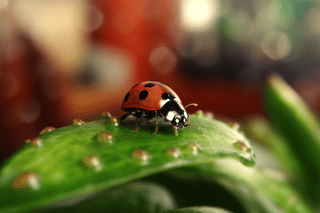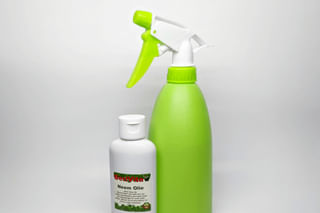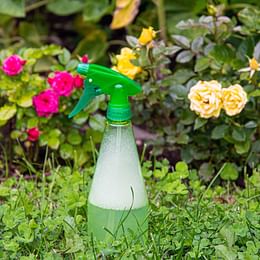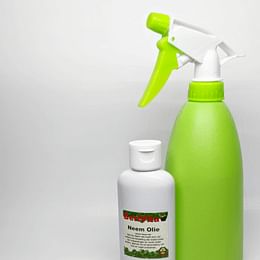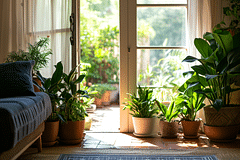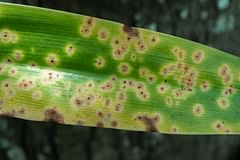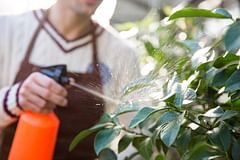How to Get Rid of Aphids on Houseplants
Learn how to get rid of aphids on your houseplants with our easy-to-follow guide. Our tips and tricks will help you eliminate these pesky pests and keep your plants healthy and thriving. Say goodbye to aphids and hello to a beautiful and vibrant indoor garden.
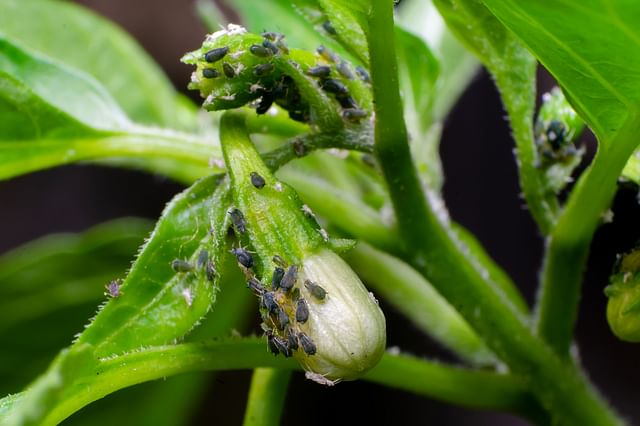 Are you tired of finding aphids on your houseplants? Let's help you get rid of these pests on your plants so they can thrive once again!
Are you tired of finding aphids on your houseplants? Let's help you get rid of these pests on your plants so they can thrive once again!
Many plant parents struggle with these tiny invaders, but the good news is that there are effective ways to get rid of them. In this plant care guide, I'll cover everything you need to know about identifying and treating aphids on your houseplants.
In this plant care guide, we're going to look at these topics:
Let's dive in and get those bugs out of your plant collection!
What are Aphids?
Aphids are tiny insects that are no larger than 1/8 of an inch. They are soft-bodied with pear-shaped bodies and can range in color from green to brown to black. Aphids feed on the sap of plants, and can quickly multiply and spread to other plants.
You can spot if your plant is suffering from an aphid infestation by looking at the plant and noticing any distorted leaves, yellowing or wilting leaves, and a sticky substance known as honeydew on plant surfaces.
How do Aphids Damage Plants?
Aphids damage your plants by piercing the plant's leaves and feeding on their sap. This can cause stunted growth, curled or distorted leaves, and yellowing or wilting.
Some plants are more susceptible to aphid damage than others, especially those with tender new growth. In addition to sap feeding, aphids can also transmit plant viruses and the honeydew they leave behind on your plant can attract other pests such as ants.
Luckily for you and your pets, aphids are relatively harmless to you and your pets. They only cause damage to your plants and don't bite or sting people or animals, and cannot spread any diseases to them.
However, if the aphids on your plant attract other insects with their honeydew, these could harm you.
Learn how to get rid of aphids on your houseplants with our easy-to-follow guide. Our tips and tricks will help you eliminate these pesky pests and keep your plants healthy and thriving. Say goodbye to aphids and hello to a beautiful and vibrant indoor garden.
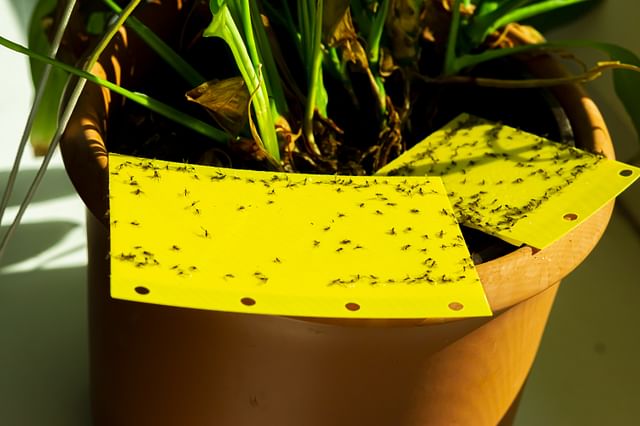
When you spot aphids on your plant, you should take a few steps to get rid of the pest and prevent (further) damage to your houseplants.
Luckily, there are several easy methods for controlling aphids on houseplants, ranging from physical removal to using natural predators or chemical pesticides. Here are some effective tips for getting rid of aphids on your plants.
Inspect Your Plants Regularly
The first step in controlling aphids on houseplants is to inspect your plants regularly for signs of infestation. Look for distorted leaves, yellowing, or wilting, as well as the presence of sticky honeydew. Check the undersides of leaves and near the growing tips of plants, as this is where aphids are most commonly found.
Physically Remove Aphids
One of the most effective ways to control a small aphid infestation is to physically remove the insects by hand. Simply pick off affected leaves or gently wipe them off with a damp cloth or cotton swab.
For larger infestations, you can use a strong jet of water to dislodge aphids and wash them away. An easy way to do this is to put your plant(s) in the shower and clean off the leaves using the shower head.
Use Natural Predators
If you're looking for a more hands-off approach, you can also use the natural predators of Aphids to remove them from your plants.
Ladybugs, lacewings, and parasitic wasps are all beneficial insects that feed on aphids. You can purchase these insects online or at your local garden center and release them onto your plants.
However, be careful not to use chemical pesticides on your plants beforehand, as they can harm natural predators as well as aphids.
You might be a little concerned about bringing more insects into your home and having them fly around, but this doesn't happen. These natural predators generally stick to your plant, where they can feed on the Aphids.
Use Neem Oil
If you're not too keen on bringing extra insects into your house, you can also use sprays to get rid of Aphids.
Neem oil is a natural insecticide derived from the neem tree that can be effective in controlling aphids on houseplants. Neem oil works by disrupting the hormonal systems of insects and can also repel or suffocate aphids. Mix one part neem oil with 10 parts water and spray directly onto the affected plants. Repeat every 2-3 days until the pest is gone.
Neem oil is also an excellent way to prevent an infestation from happening in the first place. Just spray your plant every 7-10 days and keep the leaves nice and clean.
Use Insecticidal Soap
Insecticidal soap is another natural insecticide that can be effective in controlling aphids on houseplants. It works by suffocating the insects and can be particularly helpful in controlling heavy infestations. Be sure to apply the soap thoroughly to all plant surfaces, including the undersides of leaves. Repeat every 7-10 days as needed.
Use Chemical Pesticides
If all else fails, you may need to start using chemical pesticides to control aphids on houseplants. However, be sure to use a product that is labeled for indoor use and follow all instructions carefully.
Some common chemical pesticides for aphids include imidacloprid, acetamiprid, and pyrethroids. Be sure to read and follow all label instructions and precautions.
Prevention is Key
The best way to control aphids on houseplants is to prevent them from infesting your plants in the first place. Here are some tips for keeping aphids at bay:
- Keep your plants healthy and well-watered
- Avoid over-fertilizing plants, as this can attract aphids
- Isolate new plants for a few weeks to make they are free of pests and won't spread anything to your other plants
- Use yellow sticky traps to monitor for aphids and other insects
With a little effort and regular maintenance, you can protect your houseplants from aphids and keep them thriving for many years.
Thank you for reading this post! I hope it helps you to keep your plants healthy and beautiful! If you're looking for more guides on specific plants, you can always request a plant guide to get a guide for the plant you have trouble with.
Test your plant care knowledge
Quiz completed!
Want to learn more? Sign up for my newsletter to receive free tips in your inbox!
Sign up now!